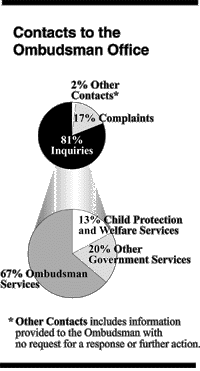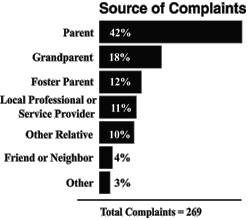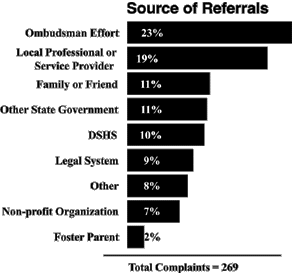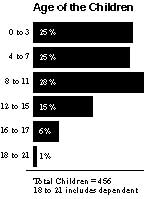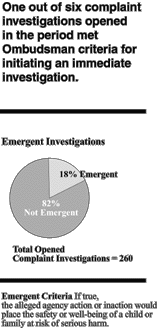Out of 1,580 contacts to the Office of the Family and Children's Ombudsman, 82 percent were inquiries, a five percent increase over the year before. The Ombudsman received 1,272 inquiries at an average rate of 25 inquiries per week.
Sixty-seven percent wanted basic information on how the Ombudsman could help, how to file a complaint, and how to get a complaint form. If their concern involved the Department of Social and Health Services (DSHS) Children's Administration, the right to contact the Office of Constituent Relations was explained.Complaints
About 13 percent concerned laws, policies, and procedures for child protection and child welfare services. The Ombudsman does not provide legal advice, however legal rights and responsibilities were explained.
About 20 percent concerned other government services. The Family and Children's Ombudsman found out who to contact, and referred these people to agencies that could help.
Over the past year, complaints increased eight percent. The Office of the Family and Children's Ombudsman received 269 complaints. Complaints received from Eastern and Western Washington were in proportion to their populations.
1,272 of these contacts were inquiries
